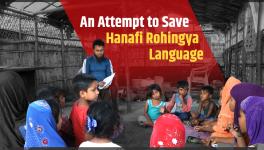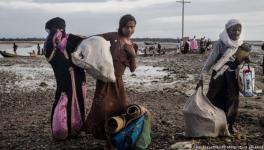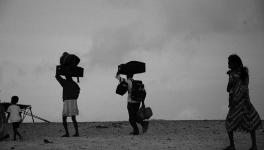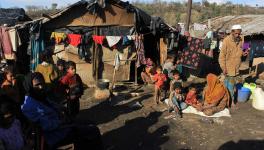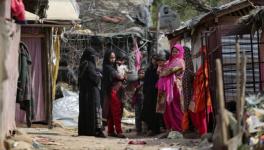Myanmar Accused of ‘Wiping Out’ Citizen Reporters in Rakhine Region
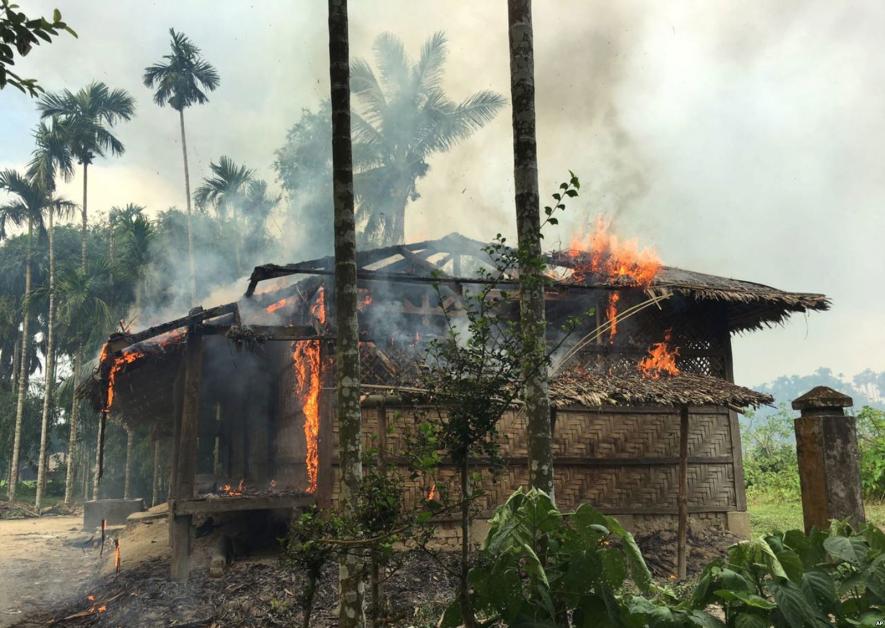
Human Rights groups have claimed that the Myanmar military has killed and abducted many of the reporters to “sabotage” the network of young volunteers that had been secretly reporting on the persecution of the Muslim minority in Myanmar since 2012.
The ‘mobile phone reporters’ were actively involved in sending photos, videos and audio clips, related to Rohingya ‘ethnic cleansing’, to the outside world, according to reports.
Phil Robertson, of Human Rights Watch, said:
“With Rohingya reporters being absent on the ground, much of the eyewitness video and other information they provided has been lost, and this is a critical missing piece of the puzzle to understand what’s happening on the ground because most of the humanitarian agencies, journalists and international monitors are blocked from most of northern Rakhine state.”
Rohingya refugee Mohammad Rafique, who edits the Rohingya community news portal The Stateless, said that "over 95 percent" of Rakhine's mobile reporters had gone missing since the crackdown began.
"International media reporters and human rights activists too, gather persecution and violence-related information from the Rohingya mobile network. They all, including our community's media outlets, are being starved of information from Rakhine now," the Guardian quoted Rafique as saying.
Ko Ko Linn, a Bangladesh-based Rohingya community spokesperson, said 2,000 had been active in 2016. Noor Hossain, 25, a former mobile reporter who fled to Bangladesh in early September, said they took extraordinary risks to gather information.
When riots broke out between Buddhists and Rohingya in Rakhine in 2012, the authorities deployed the military, with allegations surfacing that the Army committed ‘mass crimes’ in the Rohingya villages. The Rohingya population, who speak Rohingya or Ruaingga, a distinct dialect, is not considered one of the country's 135 official ethnic groups and have been denied citizenship in Myanmar since 1982.
The Rohingya community leaders had set up the network of undercover citizen reporters, who began documenting incidents and sending reports out of the country, mostly for use by Rohingya media outlets.
Earlier, the human rights groups had expressed great concerns over the Rohingya reparation deal between Bangladesh and Myanmar.
"(Some) 620,000 Rohingya refugees have only just escaped one of the most brutal cases of mass persecution in recent times... The idea that Myanmar will now welcome them back to their smouldering villages with open arms is laughable," said HRW's Bill Frelick.
International experts warn that the reparation deal, without being strictly monitored by the independent international monitors, can lead to renewed persecution.
In September, a UN report had accused the Myanmar government of launching ethnic cleansing campaigns against Rohingya population in Rakhine region. More than 168,000 Rohingya have fled Myanmar since 2012.
(with inputs from IANS)
Get the latest reports & analysis with people's perspective on Protests, movements & deep analytical videos, discussions of the current affairs in your Telegram app. Subscribe to NewsClick's Telegram channel & get Real-Time updates on stories, as they get published on our website.











